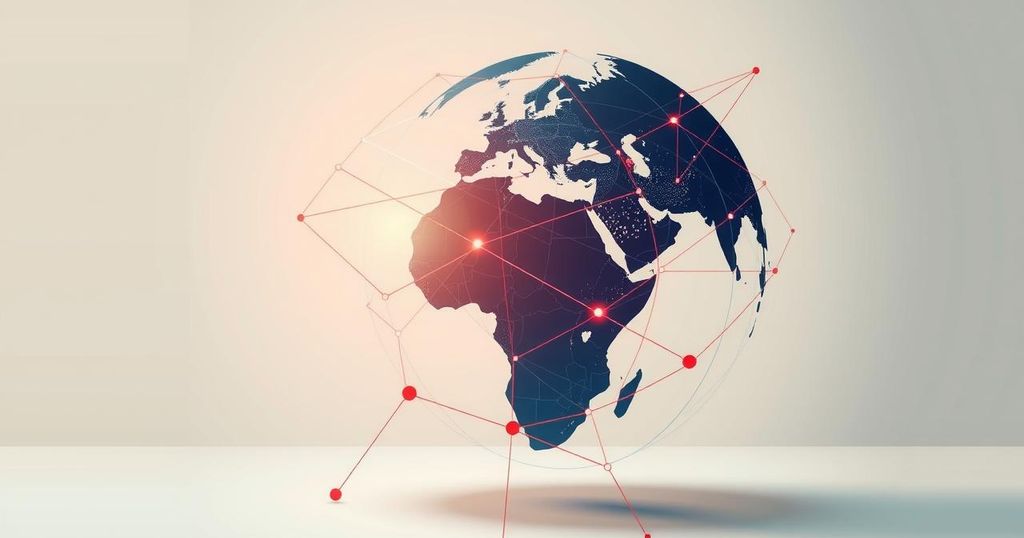Iranian Political and Humanitarian Update – February 5, 2025

On February 5, 2025, Iran faces a political crisis marked by human rights violations, a looming water crisis, and intensified scrutiny regarding its nuclear ambitions. Condolences were expressed for Algerian statesman Sid Ahmad Ghozali, while protests continued both domestically and internationally against death sentences for political prisoners.
On February 5, 2025, condolences were expressed for Sid Ahmad Ghozali, former Prime Minister of Algeria, who was a stalwart supporter of the Iranian Resistance throughout his political career. His dedication to the PMOI/MEK and his steadfast commitment to humanitarian and ethical values during challenging times earned him a revered place in the history of the Iranian people.
Iran’s judiciary is experiencing a deepening political crisis, with Judiciary Chief Gholamhossein Mohseni-Eje’i criticizing former foreign minister Mohammad Javad Zarif for statements made at the Davos Summit. Eje’i asserted that the Iranian government must persevere against external pressures and internal dissent, emphasizing the need for unity against perceived tyranny.
Iran is on the brink of a water crisis due to insufficient rainfall and poor management, leading to speculation of potential summer water rationing. Recent reports detail that over half of the country’s dams are at low capacity, with water inflow decreasing significantly compared to previous years, causing widespread concern among citizens and officials.
In the U.S. Congress, bipartisan efforts are being made to assert a strong stance against Iran’s nuclear ambitions. Representative Jared Moskowitz introduced new legislation endorsing various potential avenues to counteract this perceived existential threat, stressing that U.S. national security is at stake, and supportive actions towards ally Israel are paramount.
Political prisoner Manouchehr Fallah has been sentenced to death without fair legal representation, raising alarm over the judicial system’s integrity. The trial process criticized for lacking transparency and proper defense, highlighted broader concerns about human rights violations within the Iranian regime’s judicial processes.
Family members of death row political prisoners protested outside Evin Prison, demanding the cancellation of harsh sentences imposed on their relatives. The protest underscores growing public unrest over the Iranian judicial system’s approach to political dissent and the brutal treatment of prisoners.
Following widespread protests, two political prisoners, Behrouz Ehsani and Mehdi Hassani, had their executions suspended, and their cases referred for retrial. Their transfers to the political prisoner ward signify a small victory for human rights advocates amid ongoing scrutiny of Iran’s penal practices.
An exhibition organized by PMOI supporters in Paris aimed at denouncing Iran’s human rights violations while calling attention to the upcoming Free Iran Rally in February. Supporters seek international solidarity to amplify pressure on the Iranian regime to respect human rights norms.
In various cities across Germany and Sweden, PMOI supporters rallied against death penalties for political prisoners, including highlighting the plight of Behrouz Ehsani and Mehdi Hassani. These protests reflect mounting international calls for the release of political prisoners and an end to the death penalty in Iran.
The current political climate in Iran is marked by significant turmoil, including deepening crises related to human rights abuses and the ongoing struggle for reform within the judiciary. The Iranian government is facing a legitimacy crisis as internal and external criticisms mount over its handling of political dissent and resource mismanagement. Concurrently, international relations are strained as the U.S. and allied nations scrutinize Iran’s nuclear aspirations and human rights record, leading to legislative actions in support of amplified pressure on the Iranian regime.
In summary, the situation in Iran on February 5, 2025, encompasses a range of critical developments including the mourning of an anti-regime ally, ongoing judicial injustices, escalating human rights violations, international legislative responses to Iran’s nuclear ambitions, and a call for global solidarity against the Iranian regime’s oppression. These issues collectively highlight the urgent need for reform and accountability in Iran’s governance and judicial practices.
Original Source: www.ncr-iran.org








